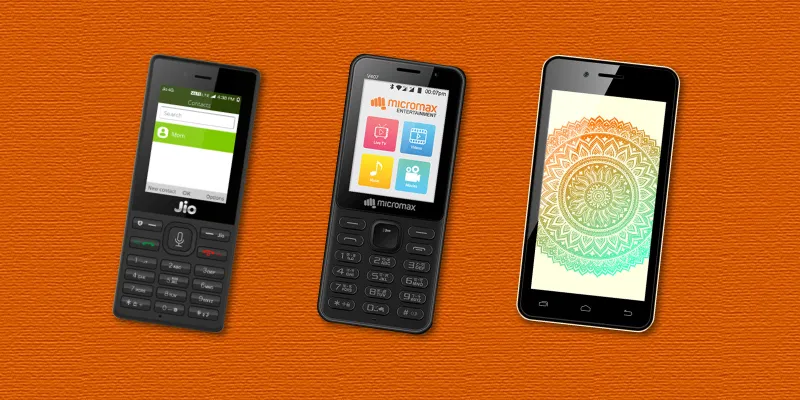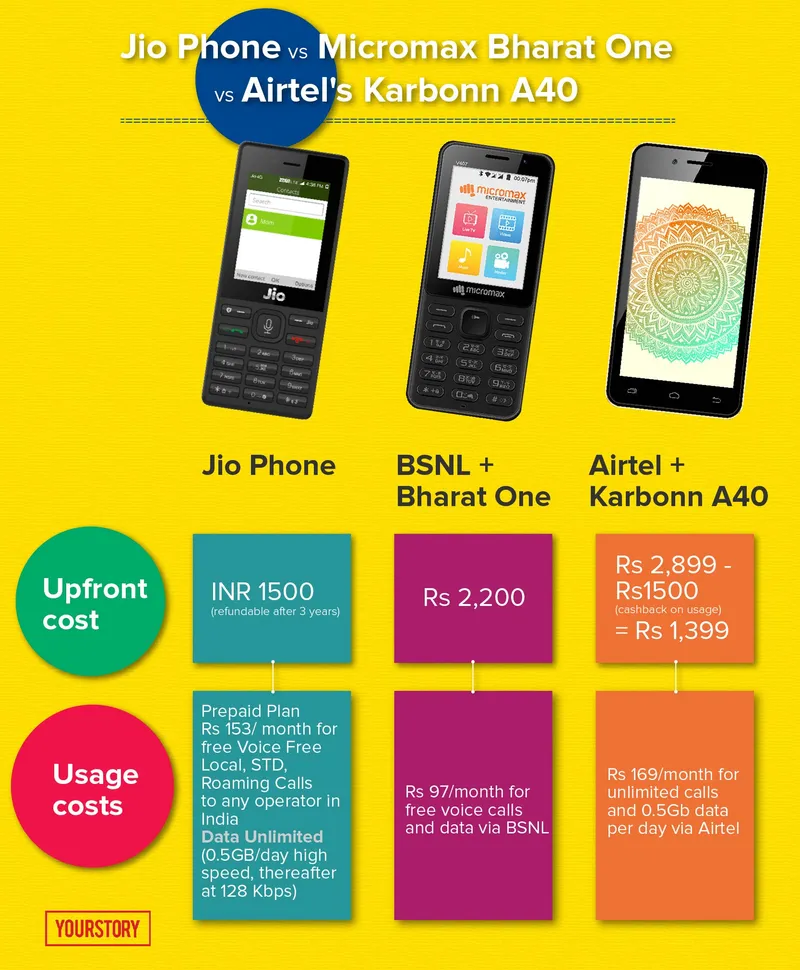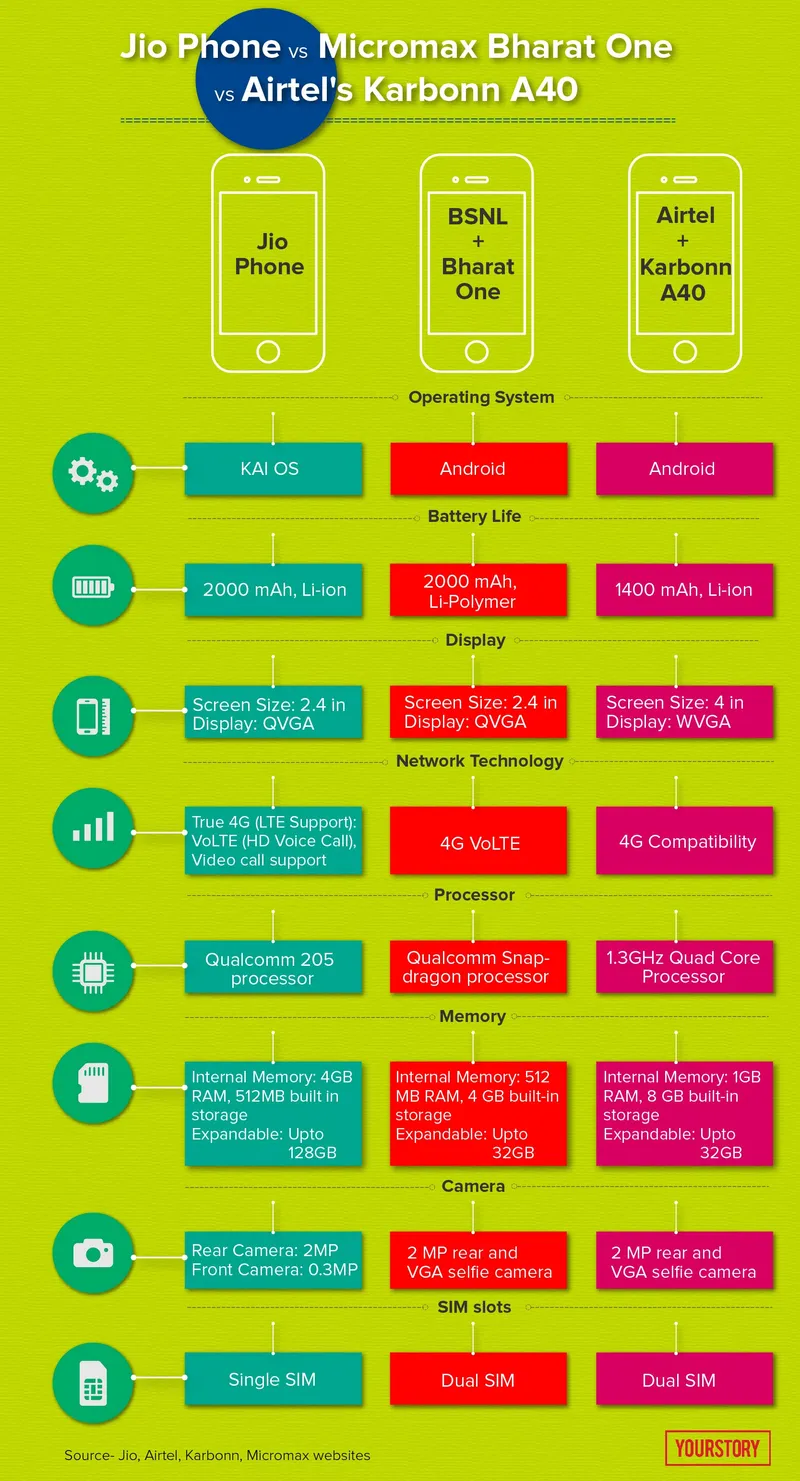War of the entry-level smartphones: Jio Phone vs Bharat One vs Karbonn A40
The market for premium and mid-range smartphones includes a lot of global and home-grown players and is quite saturated. The entry-level smartphone segment, though, shows immense growth opportunity. Smartphone makers and telecom operators are forming allies and drawing battle lines.
India may run on chai, but smartphones have now become ubiquitous in providing us our daily dose of news, commuting options, food... and also chai. India has leapfrogged personal computers and mass-adopted smartphones in the last few years, and this has lead to massive internal and external interest in capturing the Indian smartphone opportunity.
The market can be broken down into three main categories-
- Premium smartphone segment.
- Mid-range phones.
- Low-end/entry-level phones.
The premium segment has the largest margin for profits, while the mid-range segment provides volumes for smartphone makers. Hence, these have been the two main focus areas for most of the global and home-grown smartphone makers.
But a large portion of India is still offline and the low-end or entry-level smartphones are a good opportunity for multiple reasons.
- They can provide smartphone makers and telecom companies tremendous volumes and the economies of scale can help sustain margins.
- Affluent Indians in cities and towns generally look to keep a secondary phone or backup smartphone handy in case of emergencies or when their primary phones need to be serviced.
The affordable smartphone war

Mukesh Ambani’s Reliance Jio recently unveiled their plans to focus on the affordable smartphone space with ‘virtually free smartphone’ labelled Jio Phone. Booking the phone involves a Rs 1,500 deposit fee that is refundable after three years. Jio provides both the smartphone and SIM card for their Jio Phone. Not all players in the space have such capabilities, so this has lead to interesting tie-ups in the telecom space.
Micromax recently announced their entry-level smartphone, Bharat One, in partnership with telecom provider BSNL. Airtel, on the other hand, partnered with Karbonn to provide its own budget smartphone.
While Jio Phone and Bharat One could be defined as feature phones with some smart capabilities, Karbonn A40 is a full-fledged smartphone with a touchscreen and devoid of a physical keypad.
Here is a quick comparison of the price points of all the above three mentioned devices and their monthly tariffs.

Indian consumers are generally tech-savvy as well as price-sensitive when it comes to purchases above certain price points. They are known to judge smartphones based on their processors and functionalities and the brand of the phone is more of an afterthought.
Here is a quick side-by-side comparison of JioPhone vs Bharat One vs Karbonn A40-

Which of these phones would you consider buying as your primary or secondary device? What feature stands out for you?







